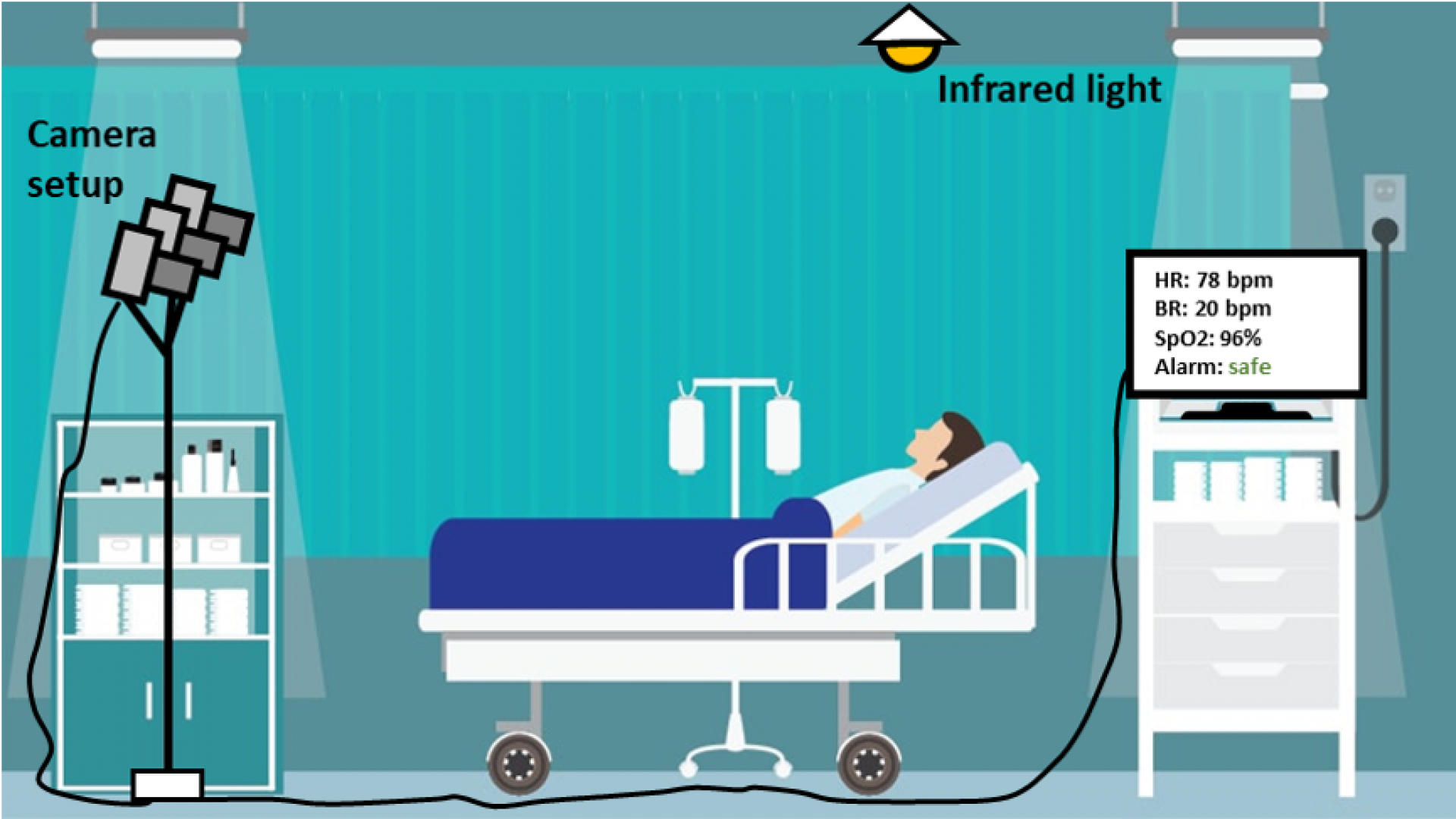
Generally, clinical staff on the hospital ward collect vital signs at regular intervals to determine a patient’s cardiorespiratory status. These intervals usually vary between 6 to 10 hours. This spot-check approach has clear limitations. First, the interval between spot-checks is undesirably long, as deviations in vital signs that could indicate acute adverse events typically take place on a shorter timescale. Furthermore, the approach depends on contact sensors, such as ECG leads and the pulse-oximeter, which can be uncomfortable for the patient, especially during sleep.
Recently, it has been demonstrated that vital signs such as heart rate, respiration rate, blood oxygen saturation and temperature can be measured remotely via camera-based methods. These methods are much less invasive than contact-based sensors. As such, camera-based methods could therefore greatly improve patient comfort and allow for the replacement of spot-checks with continuous monitoring without decreasing patient comfort. Furthermore, camera-based methods do not require the involvement of clinical staff for vital signs monitoring. Moreover, continuous monitoring allows inclusion of vital sign trends and deviations in the evaluation of the cardiorespiratory status of a patient. Finally, camera-based methods allow for video context analysis, for example the detection of a patient falling out of bed or pain detection by facial expression analysis.
This project explores continuous video monitoring of the cardiorespiratory status as an innovative unobtrusive method that could eventually aid to reduce workload of the hospital staff and better predict (acute) deterioration or adverse cardiac events. The first research focus will be evaluating the feasibility and reliability of camera-based continuous monitoring using data collected from consenting patients on the ICU of the Catharina hospital in Eindhoven and healthy volunteers. Furthermore, after robust and reliable versions of these technologies are achieved, they will be used to develop a system to automatically detect patient deterioration by means of generating automated early warning scores using the measured vital signs. Finally, throughout the project clinical staff and patient experience is assessed, which forms an important pillar for the design of the camera-based technologies and early warning scores.
The FORSEE project started on the June 1st, 2020. It is funded by ZonMw, NWO, the Hartstichting and the Dutch CardioVascular Alliance (DCVA) from the funding call “Heart for a sustainable healthcare. Medical devices for early recognition, prevention and treatment of cardiovascular diseases contributing to sustainable healthcare”.